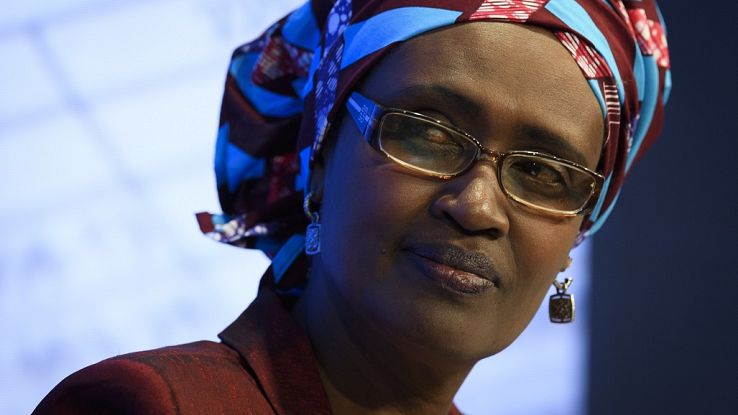Concerns are rising in Africa about a potential resurgence of the devastating AIDS crisis that once claimed millions of lives across the continent.
Florence Makumene, a 53-year-old from Zimbabwe, witnessed the tragic toll of HIV on her loved ones, who faced a diagnosis that was often seen as a death sentence.
However, when she tested positive in 2016, her story took a different turn thanks to a community initiative supported by the US President’s Emergency Plan for AIDS Relief, PEPFAR, which ensured she received essential treatment.
“I was deteriorating, but after starting treatment, I made a remarkable recovery,” Makumene shared.
Since its inception in 2003, PEPFAR has been credited with saving over 26 million lives and significantly altering the global landscape of AIDS.
However, following a 90-day freeze on foreign aid ordered by former US President Donald Trump, this vital program has come to a standstill.
In Africa, the consequences have been dire, with thousands of US-funded health workers losing their jobs and clinics shutting down, leading to diminished access to HIV testing and treatment services.
PEPFAR
Health officials and experts across the continent are urgently calling for the resumption of PEPFAR, fearing that the dismantling of these essential services could set back progress by decades.
“If the American government doesn’t reconsider and uphold its leadership… lives will be lost,” warned Winnie Byanyima, Executive Director of the United Nations AIDS program.
According to the United Nations AIDS program, AIDS-related deaths have plummeted by 69% since their peak in 2004, and new HIV infections have dropped by 60% since 1995.
Many experts attribute this turnaround to PEPFAR, initiated by Republican President George W. Bush, which has primarily focused on Africa, saving countless lives through a program that provides crucial medication to manage HIV.
Now, the continuity of this treatment is at risk.
The nongovernmental organization supporting Makumene has been inactive for weeks, mirroring the situation of nearly all PEPFAR-funded NGOs across Africa as their futures are deliberated inWashington.
“We feel abandoned; there’s no one to help us,” expressed Makumene, who has a limited supply of medication. “We are reverting to the dark times when being HIV positive was synonymous with death. We urgently need assistance.”
She is among approximately 20 million individuals globally who rely on antiretroviral medications, or ARVs, with the support of PEPFAR.
These medications prevent the HIV virus from proliferating within the body.
Halting their use allows the virus to multiply again, potentially resulting in the development of drug-resistant strains.
Byanyima informed The Associated Press that the funding halt could lead to a rise in AIDS cases, causing “panic, fear, and confusion” across numerous African nations. “We could see an increase of 3.4 million AIDS orphans,” she warned.
PEPFAR finances thousands of NGOs and also directly bolsters public health systems in various countries, often covering the salaries of tens of thousands of health workers involved in national HIV programs.
In South Africa, PEPFAR funds 15,000 health workers specializing in HIV within government hospitals and clinics.
Although they constitute only 5% of the total workforce in South Africa’s HIV response, they play vital roles: doctors and nurses administering ARVs, social workers, counselors, and community outreach workers connecting with those far from medical facilities.
Their removal would disrupt the entire system.
The South African government is exploring strategies to prevent a crisis by securing funds to retain these health workers.
Other African nations are facing even more significant challenges.
Africanews/Shakirat Sadiq


Comments are closed.